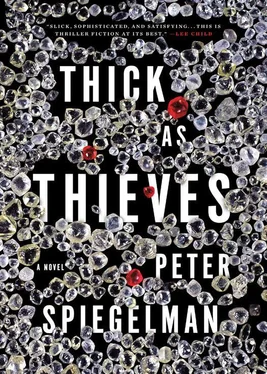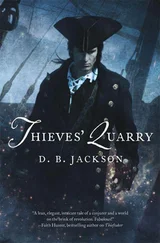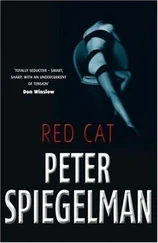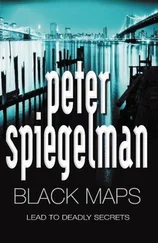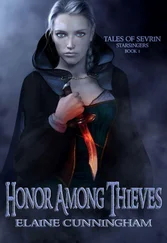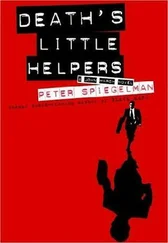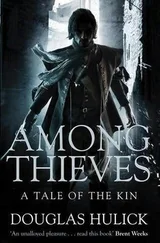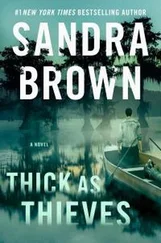Peter Spiegelman - Thick as Thieves
Здесь есть возможность читать онлайн «Peter Spiegelman - Thick as Thieves» весь текст электронной книги совершенно бесплатно (целиком полную версию без сокращений). В некоторых случаях можно слушать аудио, скачать через торрент в формате fb2 и присутствует краткое содержание. Жанр: Триллер, на английском языке. Описание произведения, (предисловие) а так же отзывы посетителей доступны на портале библиотеки ЛибКат.
- Название:Thick as Thieves
- Автор:
- Жанр:
- Год:неизвестен
- ISBN:нет данных
- Рейтинг книги:4 / 5. Голосов: 1
-
Избранное:Добавить в избранное
- Отзывы:
-
Ваша оценка:
- 80
- 1
- 2
- 3
- 4
- 5
Thick as Thieves: краткое содержание, описание и аннотация
Предлагаем к чтению аннотацию, описание, краткое содержание или предисловие (зависит от того, что написал сам автор книги «Thick as Thieves»). Если вы не нашли необходимую информацию о книге — напишите в комментариях, мы постараемся отыскать её.
Thick as Thieves — читать онлайн бесплатно полную книгу (весь текст) целиком
Ниже представлен текст книги, разбитый по страницам. Система сохранения места последней прочитанной страницы, позволяет с удобством читать онлайн бесплатно книгу «Thick as Thieves», без необходимости каждый раз заново искать на чём Вы остановились. Поставьте закладку, и сможете в любой момент перейти на страницу, на которой закончили чтение.
Интервал:
Закладка:
And which assumes he can even find a place that will take his father. Eleanor Calvin had done research and pressed some papers on him-a list of websites with information on facilities for the elderly, and on Medicare, Medicaid, and Social Security, is folded in his pocket, along with a list of nursing homes in the Berkshires. He scanned them once, twice, but they turned to Greek.
Arthur Carr calls from the front hallway: he wants his lunch. Carr goes inside and finds Eleanor Calvin’s salad, and watches his father eat it and drink more scotch. Clouds thicken in his head as he listens to his father’s monologue, which skips like a stone from war to stock markets, to the decline of the West, to Eleanor Calvin’s cooking, to her designs on the family silver.
Eleanor Calvin thought Carr should tell his father sooner rather than later about her move, but Carr has no stomach for the conversation. His father’s talk grows angrier and more tangential with each refill, and as the day fades Carr wonders if his father will sleep soon, or if he should start drinking too. Instead he walks across the hall into the living room.
It’s dimmer than the dining room, and more chaotic, with newspapers and magazines and precarious stacks of books on nearly every surface. There’s an upright piano against one wall, a block of ebony and dust, and on top, in tarnished silver frames, lying facedown, are photographs. Carr stands them up.
They’re desiccated and yellowed behind their smudged panes-ancient-looking, like bugs in a collection. His grandparents-his father’s parents-starched, pale, and unsmiling beside a long, dark sedan. His father, young and smirking amid a group of distant cousins. They are gathered by a pine-edged lake, all in dark shorts and white shirts, like campers or a Bible study group. His father again-older, taller, in cap and gown and an already bitter smile, the Battell Chapel and a bit of New Haven street behind him. And then, in the most tarnished frame, the photo he is looking for, of his mother, her black hair loose, her eyes shining, her white teeth and a curl of smoke visible between her parted lips.
He called the picture by different names as a child, because he didn’t know where it was taken or what she was doing in it, and so he made up different stories about it. En el jardin. En la fiesta. En el baile. In the garden, because his mother stands before well-tended hedges, with a bed of blue flowers visible over her shoulder, and a vine with red blossoms winding up a trellis. At the party, because she wears pearls and a floral dress, and holds a champagne flute, and because she might be laughing. At the dance, because her hair is sweeping past her shoulder, her neck is long and curved like a dancer’s, and she might be looking at someone-a partner-outside the frame. He still doesn’t know which of those stories was the right one. Maybe all of them.
His father says something from the dining room, but Carr can’t make out what. He waits for more, but nothing comes. After a while he sweeps a pile of magazines from the sofa and lies down.
The phone, burring in his pocket, wakes him from a clammy sleep. It’s dark now and he turns on the porch light as he steps outside to answer. The air is like a cool cloth on his face. Mr. Boyce, who almost never calls, is calling.
“You’re not in California,” he says. His voice is heavy and smooth, an amber syrup. “You’re supposed to be in California today, and you’re supposed to be out here tomorrow.”
“I’ll be there. I’m flying out of Boston first thing.”
“Is there a problem?”
“No. No problem.”
7
Backlit on the fourteenth tee, Mr. Boyce is a slab of granite escaped from the quarry, or spare parts from Stonehenge. Carr walks up the cart path, and from fifty yards features emerge in the monolith: massive arms and shoulders, a corded neck, a shaved head, black and gleaming against the blue sky. Rockefeller Center, Carr thinks, the statue of Atlas. He thinks it every time he sees Boyce. Carr stops walking as Mr. Boyce sets up over the ball. The driver is like a blade of grass in his hands, and though Carr has seen him play many times before, he is always amazed that the heavily plated torso can coil and release with such ease. There is a slashing noise, a gunshot, and Mr. Boyce looks down the fairway and nods. Then he beckons to Carr.
This is the twenty-second time they have met, and their twenty-second meeting on a golf course, though never on the same course twice. Today they are in Wisconsin, just outside Madison, at a private club set beside a lake, amid hills drenched in green. As he was the first time Carr saw him, in Atlanta, under a punishing August sun, Mr. Boyce is wearing tailored black. And, as always, he is golfing alone, walking the course, and carrying his own bag.
Which isn’t to say he is without retainers. There are two of them today, trailing behind in a golf cart: a large man in khakis and sunglasses, with short red hair, whose name Carr has never learned but who drives Mr. Boyce’s cars, and next to him Tina, who is slim and white-blond, whose oval face is as smooth and empty as a mannequin’s, and who, Declan once told him, kills people for Mr. Boyce. Tina looks up from a glossy magazine through dark, rectangular glasses and smiles.
A frisson of tension ripples through Carr’s gut as he walks down the fairway and cuts through the dull throbbing in his head. Ahead, Mr. Boyce seems too large for the landscape. It’s an illusion, Carr knows, though not of the light off the lake, nor even of Boyce’s considerable mass. Rather, it’s the aura he casts-of power barely controlled, of destructive potential contained, but just for now.
“Like a chainsaw,” Declan said that first time in Atlanta, “or a crate of blasting caps. You want to walk careful around him, young Carr. You want to keep a little distance.”
The menace is palpable, but always implicit. In all their meetings, Mr. Boyce has never been other than exact, economical, and watchful. Still, he’s the only man Carr knows of who made Declan nervous.
It was a long drive, three hundred yards at least, and the ball sits on the right side of the fairway, at the bend of a dogleg left, not far from the rough. The green is uphill, 150 yards away, and ringed by bunkers. Mr. Boyce walks slowly around his ball. In person his voice is even deeper-the rumbling of an earthquake.
“I expected you earlier,” he says, “by the ninth hole.”
“My flight was delayed.”
Boyce nods. “Thunderstorms over New York, I know.” The wind is gusting off the lake and Boyce studies the treetops and the distant flag. He scatters bits of grass from his fingertips and watches them fly.
“What do you think-blowing left to right, about twenty miles an hour, a little less on the green with that stand of trees. You make it a seven iron from here?”
“You know I don’t play,” Carr answers.
Mr. Boyce shakes his head. “Too bad. There’s a lot you’d like about it. The precision, the planning-everything just so.”
“Maybe in my retirement.”
Boyce chuckles, which sounds like an air horn. “I admire your optimism.” He pulls a seven iron from his bag and takes an easy practice swing. “Everything fine with your father?”
“Sure,” Carr says quietly.
“Sure,” Boyce repeats, and then all his attention is on the ball. Again there is the slash, the gunshot, an arc of cut grass in the air, and the ball bounces on the green-once, twice, now rolling toward the pin. Boyce turns back to Carr. “So tell me how you’re spending my money.”
And for the next two holes Carr does exactly that, pausing only for Boyce to strike the ball. On the seventeenth tee he finishes, and Boyce asks questions.
“Where are the stones now?”
Читать дальшеИнтервал:
Закладка:
Похожие книги на «Thick as Thieves»
Представляем Вашему вниманию похожие книги на «Thick as Thieves» списком для выбора. Мы отобрали схожую по названию и смыслу литературу в надежде предоставить читателям больше вариантов отыскать новые, интересные, ещё непрочитанные произведения.
Обсуждение, отзывы о книге «Thick as Thieves» и просто собственные мнения читателей. Оставьте ваши комментарии, напишите, что Вы думаете о произведении, его смысле или главных героях. Укажите что конкретно понравилось, а что нет, и почему Вы так считаете.
